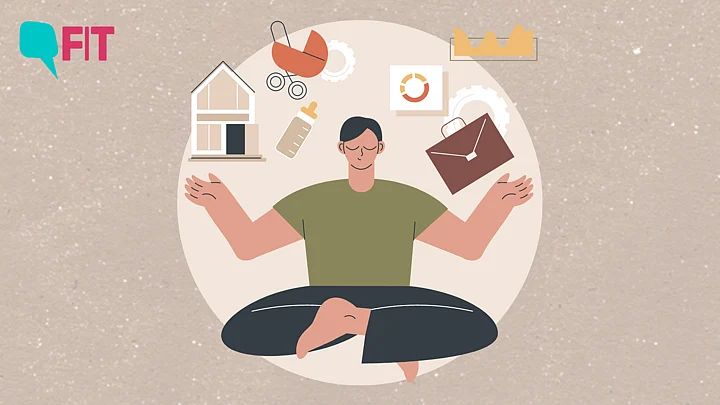If you thought you were the only one whose work-life balance has gone for a toss thanks to remote work, don’t worry. You’re not alone. A study published in the Employee Relations journal by the Indian Institute of Technology, Madras, and the Indian Institute of Management, Amritsar, suggests that work-life balance of employees have in fact taken a toll while working from home in the last two years of the COVID pandemic.
The study says that while companies might be saving money by working remotely, a lot of people in the working sector are not too happy about this. The two institutes tried to analyse how WFH resulted in a blurring of boundaries between work and home, and how it impacted the mental health of the employees.
Experts speak: Rupashree Baral from IIT Madras’ Department of Management Studies was quoted by PTI as saying, "The boundary between work and home was blurred, work affected family life negatively and vice versa, which is known as 'work-family conflict'."
"Employees find the situation 'unbearable'. They also feel like a failing parent and a failing professional."Rupashree Baral, IIT Madras’ Department of Management Studies
But gender played a role even here. While job insecurity was a big stressor for men, for women, the work-family conflict took centre stage.
Baral told PTI, "the persistent traditional gender ideology in a country like India increased the stress during peak pandemic, especially for women since they were expected to take care of the household, children and their profession all at once and in one place.”
She added that this blurring of boundaries and the work-family conflict not only impacted women more, but also raised questions about traditional gender role ideology.
What is the solution? The study suggests that employees try to cope with this imbalance with what it refers to as a “problem-focused coping strategy”.
This is essentially an attempt to stop work from negatively impacting your home life, or vice versa, by planning ahead and addressing problems as they come, while also seeking help from your personal or professional support system whenever the need arises. This can help prevent any work-family conflicts, it asserted.
What organisations can do in a crisis situation:
Support their employees
Avoid mass layoffs
Enforce boundaries
(Written with inputs from PTI.)

